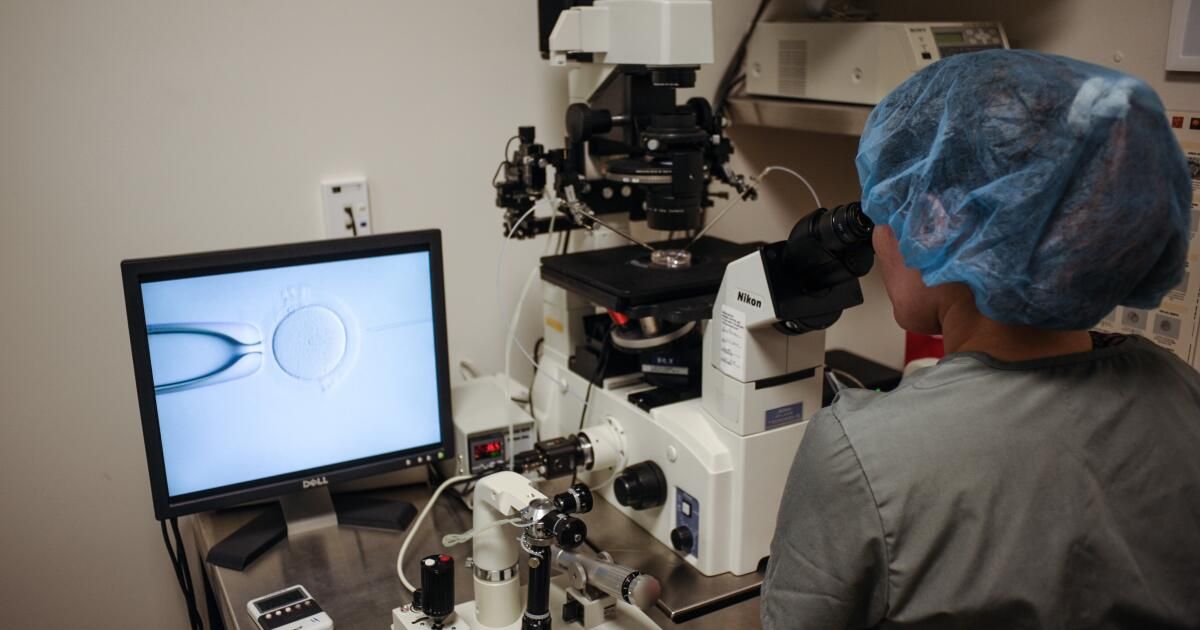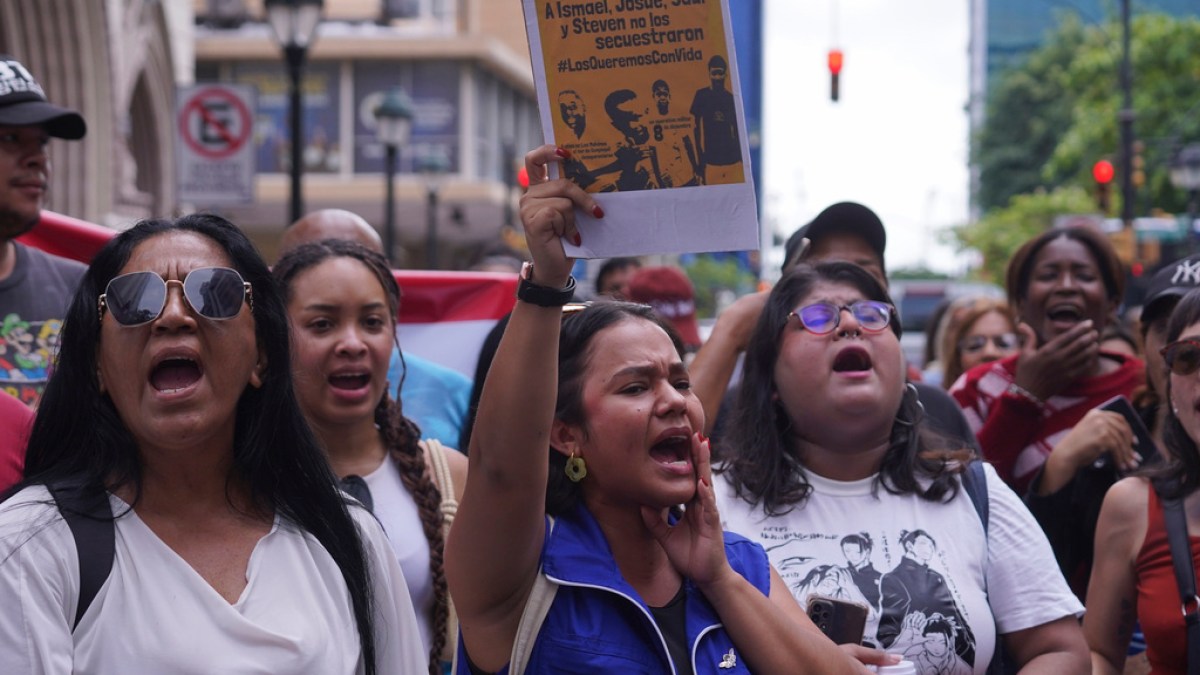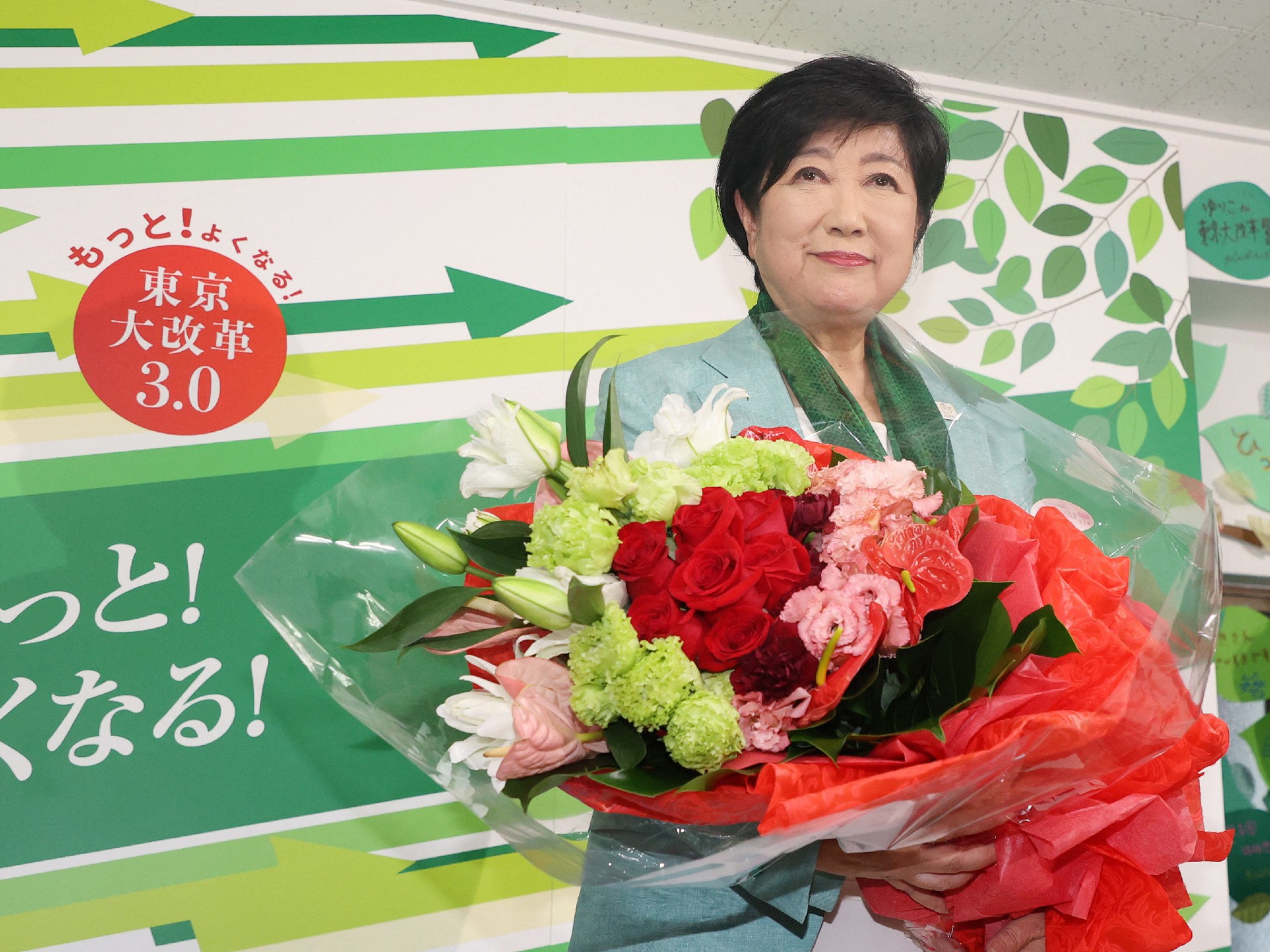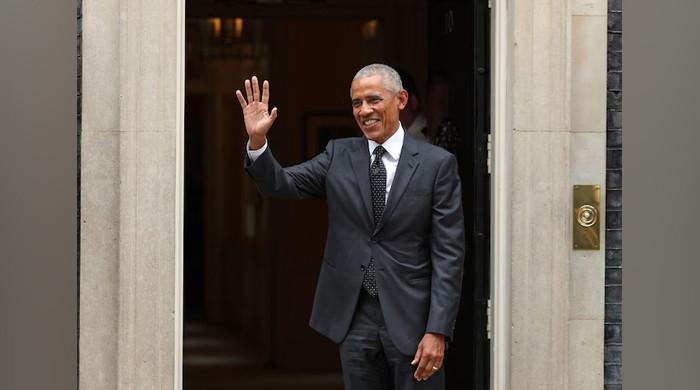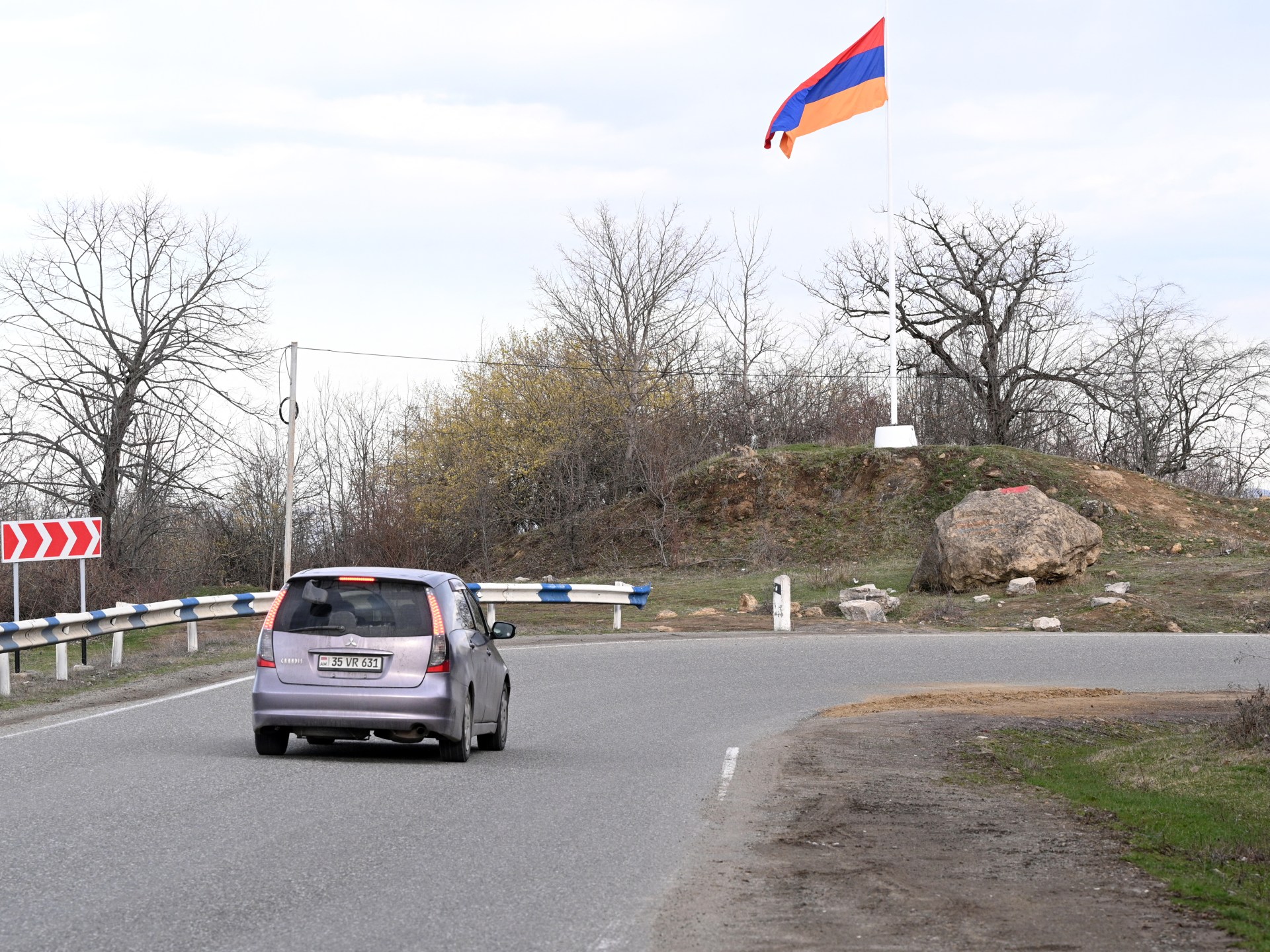The bizarre decision handed down last week by the Alabama Supreme Court, which ruled that frozen human embryos are also people, is the reductio ad absurdum of the anti-abortion movement's religious cult of the union of the egg and sperm.
The court ruled that Alabama's Wrongful Death of a Child Act, which was enacted in 1872, long before artificial reproductive technology (let alone frozen embryos) was a gleam in anyone's eye, applies to “ all unborn children, regardless of location.”
opinion columnist
Robin Abcarian
The sentence is, in a word, absurd. And I'm not the only one who thinks that way. As one of the Alabama justices put it, in a partial dissent: “To equate an embryo stored in a specialized freezer with a fetus inside a mother is to engage in an exercise in results-oriented intellectual sophistry, which I am not willing to accept. .”
Exactly what, is A frozen embryo? It is a small mass of undifferentiated cells. Some fertility centers freeze them one day after fertilization and others wait five or six days until they become blastocysts, which can be 200- to 300-cell organisms. By any normal definition, these masses are not “children,” although that is how the Alabama Supreme Court justices described them in their opinions and concurrences.
The justices also cited the Alabama Sanctity of Unborn Life Act, a constitutional amendment overwhelmingly approved by the state's voters in 2018. Voters correctly anticipated that the U.S. Supreme Court would soon overturn Roe v. Wade and would allow states to ban abortion. When the Supreme Court ruled on the Dobbs case in 2022, Alabama immediately criminalized abortion, with no exceptions in cases of rape or incest. Today, there are no abortion clinics operating in the state.
The case at hand involves three couples who filed a civil lawsuit against a Mobile, Alabama, fertility clinic, the Center for Reproductive Medicine, after their embryos were accidentally destroyed in December 2020 by one of the clinic's patients. . How that happened is almost as hard to believe as the court's decision.
According to court records, a patient “managed to enter the Center's fertility clinic through an unsecured door. The patient then entered the cryogenic room and removed several embryos. “The sub-zero temperatures at which the embryos had been stored froze burned the patient’s hand, causing the patient to drop the embryos to the ground, killing them.”
By now, you're probably wondering, as I am, why this errant patient hasn't been arrested and charged with involuntary manslaughter? I mean, if a frozen embryo is a legally protected minor child and all unborn life is sacred, then why would the state of Alabama allow this accidental killer to remain at large?
In his ruling for the majority, Judge Jay Mitchell mentioned that issue but did not rule on it. He simply acknowledged that in oral arguments, the fertility center defendants argued that “individuals cannot be convicted of criminal homicide for causing the death of extrauterine embryos,” but since the center had not raised such issues in the lower court , “we will not try to resolve them here.”
Another absurd contradiction in this case: the three families (the Fondes, the LePages and the Aysennes) signed contracts with the fertility center with instructions on how their frozen embryos should be handled. “Their embryonic children,” Mitchell wrote, “were treated in many ways as non-human property.”
Fondes, he wrote, agreed to allow the center to “automatically destroy” embryos that remained frozen for more than five years. The LePages chose to donate unused embryos to medical research. The Aysennes agreed to allow any “'abnormal embryos' to be experimented on for 'research' purposes and then 'discarded.' “
Can someone explain to me why frozen embryos are legally persons but can be experimented on or discarded when no longer wanted? None of this makes sense.
Many rightly fear that in vitro fertilization, in which eggs and sperm are placed in a petri dish before implantation in a human uterus, is unsustainable in places like Alabama. Fertility centers will face too many legal dangers and too much uncertainty. The American Society for Reproductive Medicine denounced the ruling as “deeply misguided and dangerous.”
The theocratic impulses of Alabama Chief Justice Tom Parker were on full and frightening display in this case.
At a separate special meeting, Parker sounded like he was writing a sermon for “The 700 Club” rather than ruling on a question of law.
“Human life cannot be unjustly destroyed without incurring the wrath of a holy God, who regards the destruction of his image as an affront to himself,” Parker wrote. “[E]Even before they are born, all human beings bear the image of God, and their lives cannot be destroyed without erasing his glory.”
To which one can only respond: Are you kidding? Where, in the mind of a judge like him, is the line that separates Church and State? Where is the respect for different religious beliefs, or the absence of beliefs at all?
As Alabama slides toward theocracy, remember: You are leading the way. Other states and other courts will surely do the same.
“It just takes one state to be the first one out the door, and then the next one will feel less radical,” Dana Sussman, deputy executive director of the legal advocacy organization Pregnant Justice, told the Washington Post. “This is of great concern to anyone who cares about people's reproductive rights and abortion care.”

